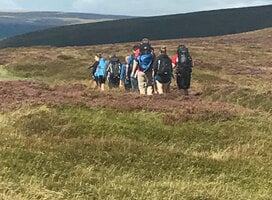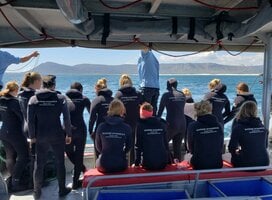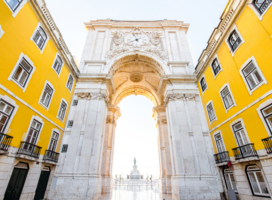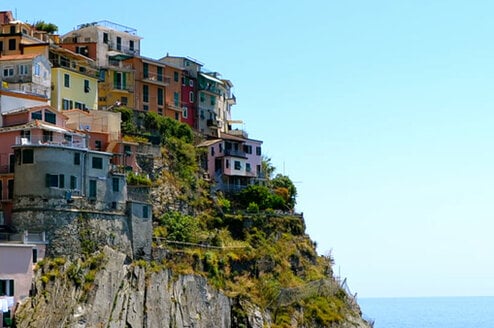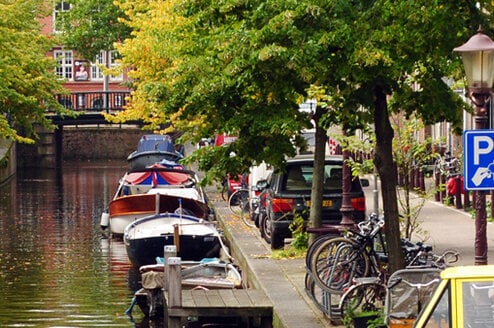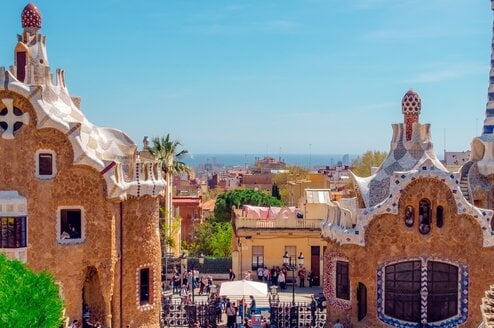Gap Year in Portugal
Studies show that chances of getting a sunny day in Portugal are of around 300 times a year, but for many that is not enough of a reason to spend a whole year in a country. Portugal offers activities for everyone; Foodies can adventure themselves by eating a whole pig (and they mean EVERY part of it), tasting soup made with a rock or having a simple mustard steak sandwich for lunch.
If Photography is your thing, many castles and landscapes await and even a History buff can get their shoes shined while looking at the historic buildings, inscriptions, churches and monuments that have been around since 1070 and are scattered around the oldest streets of Lisbon and Oporto. Maybe you will need more that a gap year, consider two as you will want to get to know the people; friendly, passionate and with a constant smile, they are always ready to help, even if they don’t speak the language. Though small, Portugal is just the place to create memories for life.
Language Study
Portuguese might prove a difficult language for the average English speaker, but it’s always worth a shot. Most colleges provide Portuguese language courses specifically designed for foreigners, and this is also the easiest way to make friends that share your interests and are down in discovering the country with you.
Teaching English
If you have a TEFL Certificate, you can do some teaching of your own. Though you will unlikely be placed in a public or private school without a college degree, lots of small after-school institutions will accept you for some part-time teaching. This is an excellent way to make some cash while meeting the young and the restless of Portugal, but be aware that pay is, if you are lucky, 15 euros per class (you can have one or more students), so it will be hard to make a living out of it. Airfare and accommodation are usually not included.
Work
While getting a job might be proven difficult without a college degree, especially in a country that is obsessed with them, I advise you to use our good friend the Web before making this move. Contact companies directly and/or make clear (in your Cover Letter for instance) that you would be willing to move at your own costs if they offer you a job; chances are you will only get entry-level positions or internships that may pay as badly as (some) may sound…but just remember, some are just not worth xeroxing your Gap Year away!
Travel
It’s quite easy to travel your way through Portugal, it’s a lot harder to stick to your plans since there is much sight-seeing to be done, in such a small area country. Your 3-4 hour planned trip might actually take you the whole day due to museums, churches, random market-places or green fields until the eye can see, and with over 4000 hotels, inn’s, youth hostels (5 of the world’s top 10 are in Portugal!) and B&B’s, your place to rest could be just around the corner. Plus most websites (mostly transportation and accommodation) are usually translated into English and the majority of Portuguese speaks Spanish, English or French and is always willing to help.
Volunteer
Volunteering is also an option but unfortunately it doesn't pay much and most times neither relocation nor visas are included in the “starter pack”. You can contact NGO’s and corporations directly or try your embassy to know what is already being done, for example, the American Embassy has a yearly volunteer event where all American families living in Portugal are welcome to join, maybe you can get a seat!
Cost of Living in Portugal
Living can be cheap, if you know how to get it. Of course sleeping will be your biggest expense so research as best as you can online and if you want a house for yourself, you won’t get anything for less than €300 in the capital (and have your doubts about you if you can). Some hotels/hostels prefer to sell you the room 15% off than not sell it at all, but waiting until that late can be a real pain, especially if you are backpacking, so research sleeping arrangements online if you are travelling through the country.
When it comes to food, everything is good in Portugal. Avoid the restaurants that try to lure you in with people and menus outside (only because they can be expensive) and go for the ones which are crowded with old fat men and have no frilly décor’s (tabernas or tascas), since they are usually the best. Prices are relatively cheap there, especially for drinking, but a steak sandwich (bifana) should cost you no more than €3 and a bitoque (beef, salad, rice, french fries and an egg) no more than €10 (€12 in the more expensive parts of town). For those less adventurous, yes, there are fast-food places on pretty much every corner and food from all over the world is available at some corners of the capital.
Cost of Traveling in Portugal
A bus from Oporto to Lisbon (using Rede Expressos) will cost you around €19 and from Lisbon to Faro (Algarve) another €19.50/20. Trains are charged according to distance but for the same route you would have to spend €24/30 and €21/22 respectively and depending if you travel coach or not; the longest travel will take you only 5 hours at most. On the majority of buses you will find free Wi-Fi while on trains you can only expect this in first class and only in selected routes. In Lisbon the city buses (Carris - yellow ones) will cost €1,75 per travel, no matter how long you go, trams €2,85 per travel and subway €1,25 one way. The first time you ride the subway you will have to add €0.50 to the ticket price for your rechargeable card. This can be charged with money and make your travels cheaper: €1.15 each trip on all three operators. Daily tickets are also available in certain sales points (the post office in the Lisbon Airport is one of them) and it gives you 24 hours from your first travel to go wherever and whenever, as long as you use the bus or subway lines (price €5). All prices are referred to the year 2012, we recommend checking online to see if they stand prior to your journey.
Culture and Etiquette in Portugal
Basics come into play here, but don’t put your napkin on your lap unless you are in a fancier restaurant, this will only make the waiters to give you more napkins. Knives and forks are used, you pass the bread in the basket but it’s fine to break it with your hands and put in on the table, instead of your plate. Food should not be wasted, since it’s a sign you didn't like the dish (most restaurants can even give you a “doggy bag” to take your food home), seafood, chicken, sardines and steak sandwiches are supposed to be eaten by hand in run-of-the-mill restaurants and soup is eaten in the beginning and not at the end. Tip is expected but is not added to your bill, usually €1 is the standard if service is good (just leave it with the check on the table and the busboy will pick it up) and, unless you meet valley-girls and fancy people, men are greeted with a handshake, girls with two-cheek kisses (if you DO meet valley-girls, usually one kiss is the norm –or keep your head still and let them do the work).
Health and Safety in Portugal
When you go out at night, keep your street smarts. Avoid creepy deserted streets (main avenues are always safer), avoid ill-lit places and don’t take your passport with you (a copy should keep you safe enough if you get into any trouble and will give you safe passage to get the original if needed). Always keep some extra-transportation money “hidden” somewhere just in case and if you are staying in a hotel/guest room, get their card/contact info/address and keep it somewhere you won’t lose it. Most taxi drivers don’t speak English.

